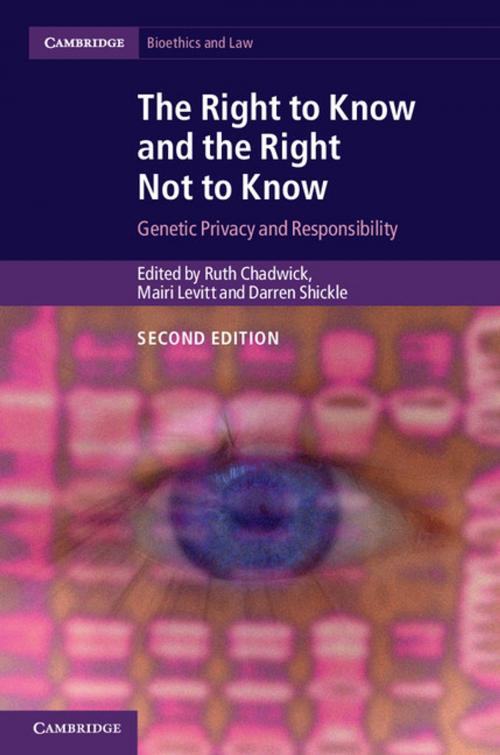The Right to Know and the Right Not to Know
Genetic Privacy and Responsibility
Nonfiction, Reference & Language, Law, Health, Medical Law & Legislation| Author: | ISBN: | 9781316055014 | |
| Publisher: | Cambridge University Press | Publication: | September 4, 2014 |
| Imprint: | Cambridge University Press | Language: | English |
| Author: | |
| ISBN: | 9781316055014 |
| Publisher: | Cambridge University Press |
| Publication: | September 4, 2014 |
| Imprint: | Cambridge University Press |
| Language: | English |
The privacy concerns discussed in the 1990s in relation to the New Genetics failed to anticipate the relevant issues for individuals, families, geneticists and society. Consumers, for example, can now buy their personal genetic information and share it online. The challenges facing genetic privacy have evolved as new biotechnologies have developed, and personal privacy is increasingly challenged by the irrepressible flow of electronic data between the personal and public spheres and by surveillance for terrorism and security risks. This book considers the right to know and the right not to know about your own and others' genomes. It discusses new privacy concerns and developments in ethical thinking, with the greater emphasis on solidarity and equity. The multidisciplinary approach covers current topics such as biobanks and forensic databases, DIY testing, group rights and accountability, the food we eat and the role of the press and the new digital media.
The privacy concerns discussed in the 1990s in relation to the New Genetics failed to anticipate the relevant issues for individuals, families, geneticists and society. Consumers, for example, can now buy their personal genetic information and share it online. The challenges facing genetic privacy have evolved as new biotechnologies have developed, and personal privacy is increasingly challenged by the irrepressible flow of electronic data between the personal and public spheres and by surveillance for terrorism and security risks. This book considers the right to know and the right not to know about your own and others' genomes. It discusses new privacy concerns and developments in ethical thinking, with the greater emphasis on solidarity and equity. The multidisciplinary approach covers current topics such as biobanks and forensic databases, DIY testing, group rights and accountability, the food we eat and the role of the press and the new digital media.















